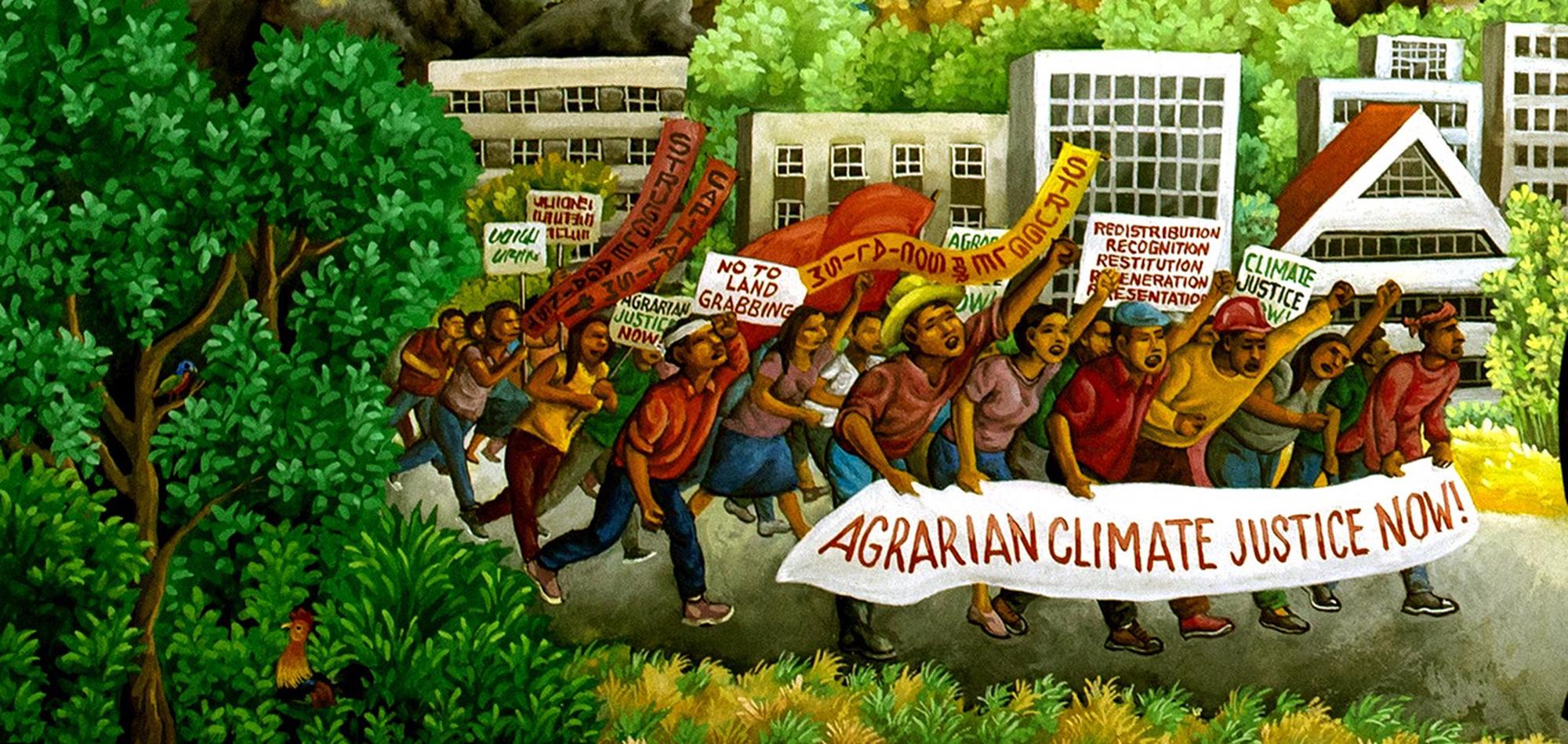-
Read More 
Call for Applications - Africa Writeshop in Critical Agrarian Studies and Scholar-Activism, Cape Town
The Journal of Peasant Studies and co-organisers are pleased to announce the
Africa Writeshop in Critical Agrarian Studies and Scholar-Activism 2025
29 September - 6 October 2025, University of the Western Cape, Cape Town, South Africa
-
Read More 
Video abstract - Participation is not the answer: epistemic violence and authoritarian practices in conservation-forced displacement
Jessica Milgroom and Priscilla Claeys take readers through their paper Participation is not the answer: epistemic violence and authoritarian practices in conservation-forced displacement. They argue that participation gives false impression that displaced people have the power to make important decision about their future whereas in reality displaced people’s needs are rarely taken into consideration. The article shows how the Mozambican state used authoritarian strategies to silence and manipulate people’s voices under the guise of participation. The article calls for a vision of conservation and development that does not depend on displacing people from their lands. Full article available at The Journal of Peasant Studies DOI:10.1080/03066150.2024.2342435
-
Read More 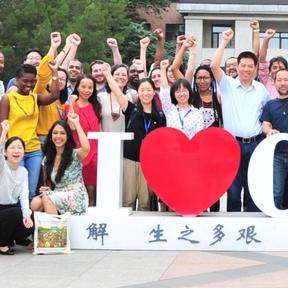
Call for Applications – Asia regional Writeshop in Critical Scholar Activism 2025 1-12 July, Beijing
The Journal of Peasant Studies and co-organizers are pleased to announce the
Asia Writeshop in Critical Agrarian Studies and Scholar-Activism 2025
1-12 July 2025, China Agricultural University, Beijing
-
Read More 
Video Abstract - Another palm is possible: small-scale palm oil farmers exercising autonomy in northeast Colombia
Angela Serrano takes readers through her paper Another palm is possible: small-scale palm oil farmers exercising autonomy in northeast Colombia. The paper explores how is it that some small-scale palm oil farmers in northeast Colombia have managed to participate in global markets whilst maintaining partial autonomy from them. Angela shows how state led land access and multiscale organizational support for small-scale farming have enabled these farmers to selectively engage with global markets and carve-out space for autonomous decision-making on their farms. Full article available at The Journal of Peasant Studies https://doi.org/10.1080/03066150.2023.2258813
-
Read More 
Agrarian perspectives on illicit drug crop economies - A forum on illicit drug crop economies
By Frances Thomson, Patrick Meehan and Jonathan Goodhand
Around the world, coca, opium-poppy and cannabis are some of the most important smallholder cash crops alongside coffee and cacao. And yet in the field of agrarian studies they tend to be a blind spot. And at the same time, the land, labour, credit and exchange relations surrounding illicit drug crop (IDC) economies, as well as the materiality of the crops themselves, are often overlooked or oversimplified in publications focused on drug policy, state failure/fragility, armed conflict, and organised crime. Our special forum in the Journal of Peasant Studies addresses this gap by applying agrarian political economy analysis to IDC economies, bringing together research on opium-poppy, coca and cannabis across three different continents.
-
Read More 
Video Abstract - Climate rentierism after coal: forests, carbon offsets, and post-coal politics in the Appalachian coalfields by Gabe Schwartzman
Gabe Schwartzman's paper examines the drivers and consequences of carbon forestry offsets in Central Appalachia. In the wake of coal industry decline and resultant economic devastation, Schwartzman shows how investments in degraded forest land spurred by California’s carbon market reproduce longstanding forms of natural resource enclosure and exclusion and amount to a form of neo-rentierism. While these dynamics generate grievances that could be articulated by the Left, so far they have only strengthened the right-wing populism that has become entrenched in the region over the past decade. In this way, Schwartzman deploys an agrarian political economy lens to demonstrate the contradictions of green capitalist solutions to the climate crisis.
-
Read More 
Video Abstract - Beyond bad weather:Climates of Uncertainty in Rural India by Tanya Matthan
The Krishna Bharadwaj and Eric Wolf Prize winner (1 of 2) of 2021-2022 Tanya Matthan takes readers through her award winning paper, Beyond bad weather:Climates of uncertainty in rural India. Matthan examines how farmers navigate risk in the Indian state of Madhya Pradesh through the complex interactions between capitalism and climate change. Bringing forward the insights of political ecology for the age of climate change, Matthan demonstrates ethnographically how “experiences of climate change are always refracted through existing production relations and power structures” (132). She further shows how conventional adaptation measures and crop insurance programs fail precisely because they do not act on these relations and thus wind up excluding those that need them the most.
-
Read More 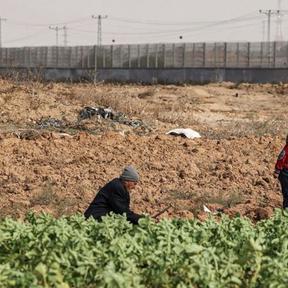
Free Access: Recent Papers on Land Grabs and Critical Agrarian Studies in Colombia from JPS
In preparation for the upcoming Land Deal Politics Initiative Conference in Bogota, JPS is releasing a collection of articles on land and and deals from the past two years, along with a collection on Critical Agrarian Studies in Colombia. Check out the collection below:
-
Read More 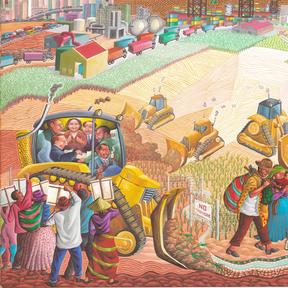
500 international researchers, activists and government officials will converge in Bogota on 19-21 March 2024 to talk about global land grabbing
"For us peasants living in communities, land is not just an investment or something that we own, but it is part of our lives and our existence. And when we tear it away it is exactly like tearing off an arm or a leg from a human being." - Ibrahima Coulibally
-
Read More 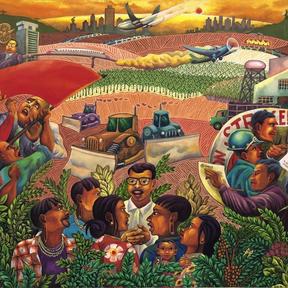
LDPI 2024 Working Paper Series: International Conference on Global Land Grabbing - Bogota, Colombia
More than a decade ago, the Land Deals Politics Initiative (LDPI) was launched as a loose network of scholars and activists concerned about the rise of land, water and green grabs across the world and the consequences for rural livelihoods and agrarian relations. A massive wave of investment in land, resulting in expropriation and displacement had emerged following the financial, food and energy crises of 2008-09. The global debate around land deals has diminished in the last several years, but important research and political questions remain. What happened to the thousands of land grabs documented by researchers, non-governmental organisations, activist groups, news media, and aid agencies? What new configurations of land, labour and capital have emerged since? How has the rise of authoritarian, state-led populism and politics re-shaped the tensions between ‘foreignisation’ and extraction? This LDPI Working Paper Series includes work in progress presented at the 2024 Global Land Grabbing Conference in Bogotá, addressing urgent challenges related to land, water, and natural resource grabbing.
-
Read More 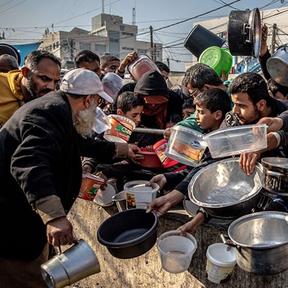
Israel’s weapon of hunger in Gaza
Israel’s weapon of hunger in Gaza
-
Read More 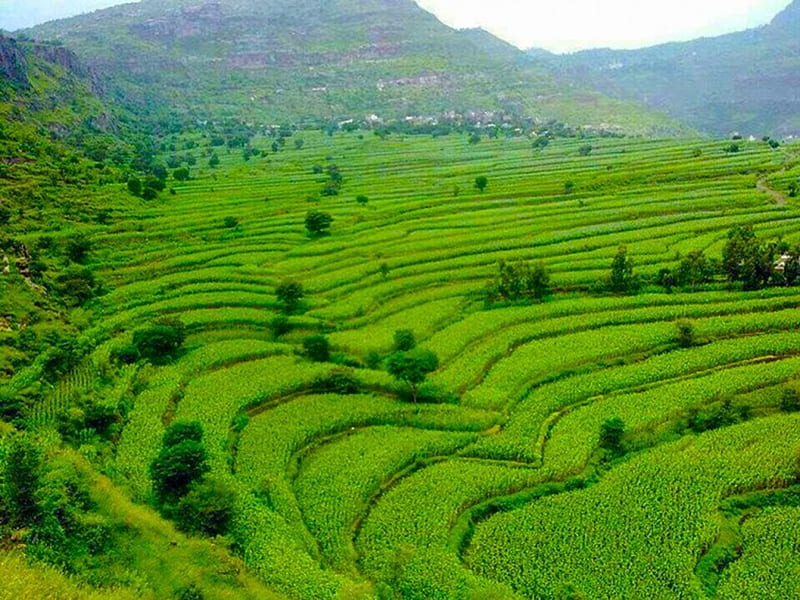
Video Abstract - The agrarian question in Yemen, a political economy critique of past agricultural policy in Yemen and its impact on the country's economy
Zaid Ali Basha takes readers through his paper on the the agrarian question in Yemen, a political economy critique of past agricultural policy in Yemen and its impact on the country's economy. It documents the imbalances between domestic agricultural production and small holding agriculturalist, society and the environment. The paper calls for a national imperative of reclaiming and revalorizing indigenous agroecological food production.
-
Read More 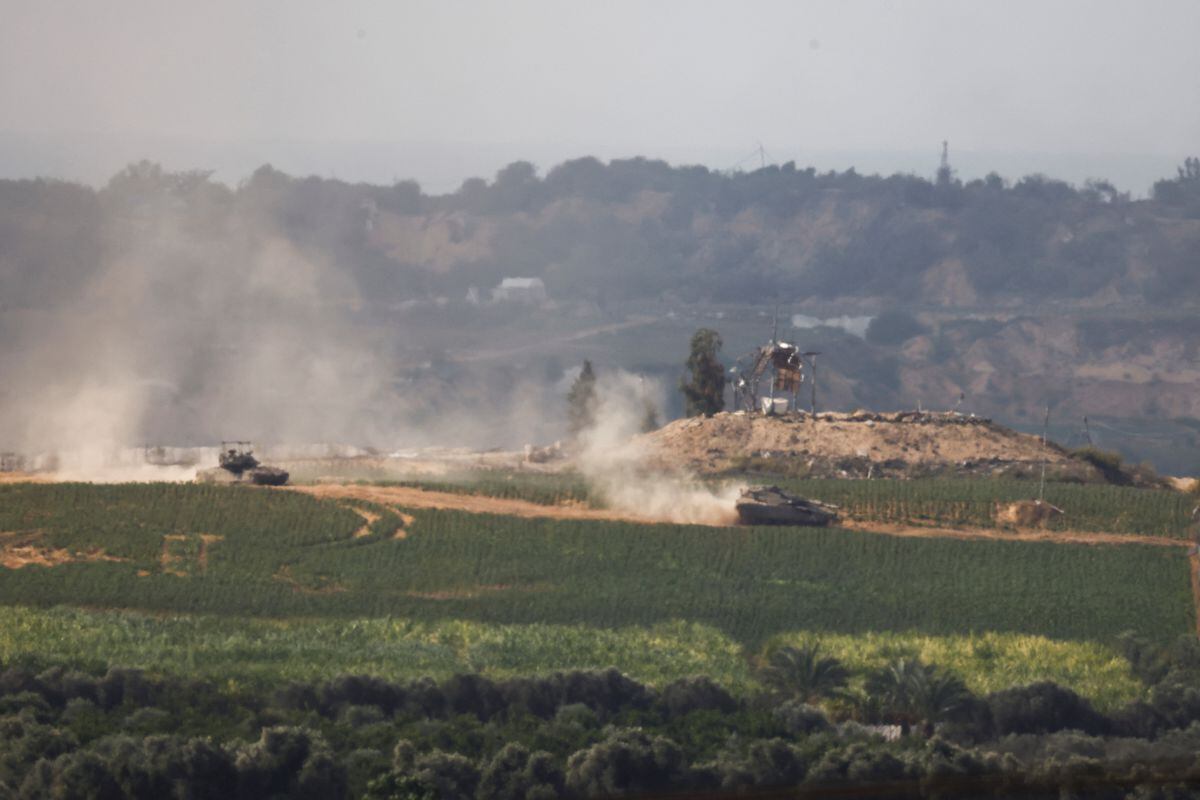
Agrarian Annihilation: Israel's war on Gaza is war upon both land and people
As of this writing, Israel’s war on Gaza has killed more than 23,000 Palestinians. The bombing and ground invasion has displaced 1.9 million people, accounting for 85% of Gaza’s population, and damaged or destroyed 40,000 structures,18% of all structures in the territory. The assault is making the Gaza Strip truly uninhabitable, with some Israeli officials openly expressing their hope to permanently remove as many Palestinians as possible from Gaza and resettle them elsewhere. This is a genocidal war, one in which a second Palestinian Nakba (‘catastrophe’) is well underway.
-
Read More 
The political economy of global land deals: What has been done, what has changed, and what’s next?
In 2010, the Land Deals Politics Initiative formed to study the rising number of large-scale land deals taking place around the world. As the so-called ‘global land grab’ took shape, we organised small grant competitions to generate more empirical research into the phenomenon, and we organised conferences to debate the parameters and dynamics from the local level to the global. In this article, we take stock of what has been written about land grabbing as well as the way in which the context has changed since 2010. We highlight the ongoing need for research, as well as the changing nature of financial capital, the institutional “reforms” that resulted from calls for change, new technologies that have emerged to measure and distribute land access, the role of climate change in underpinning powerful new green grabs, and the changing geopolitical context that challenges resistance even as people struggle to retain their access to land. Finally, in the lead up to the 2024 Conference on Global Land Grabbing in Bogotá, Colombia, we highlight several challenges for the next decade of research on global land grabbing.
-
Read More 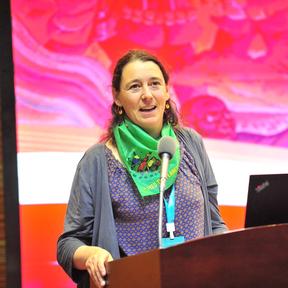
Opening Plenary remarks by General Secretary of La Via Campesina Morgan Ody Critical Agrarian Studies in the 21st Century: Beijing, China October 10th 2023
Conference of the Journal of Peasant Studies – Beijing
-
Read More 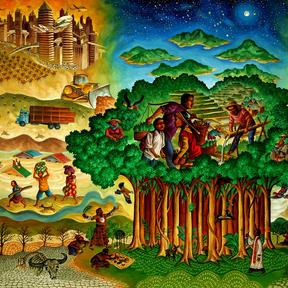
Draft Programme - Critical Agrarian Studies in the 21st Century International Conference
Draft Programme now available
College of Humanities and Development Studies, China Agricultural University
10-12 October
-
Read More 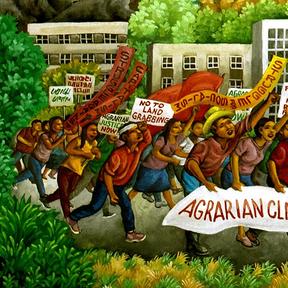
Flagship 50th anniversary issue
A flagship collection celebrates The Journal of Peasant Studies' 50th anniversary and La Via Campesina's 30th anniversary
-
Read More 
La Via Campesina at 30: a special grassroots voices collection
To celebrate the 30th anniversary of La Via Campesina, the global peasant movement, we have put together a special "grassroots voices" collection, comprising interviews with key leaders of the movement: Morgan Ody, Francisca ‘Pancha’ Rodríguez, Geum Soon Yoon, Ibrahima Coulibaly, and Paul Nicholson, as well as reflection pieces by Nettie Wiebe, Rita Calvário and Annette Aurélie Desmarais. The collection is accompanied by a laudatio piece by Jun Borras.
-
Read More 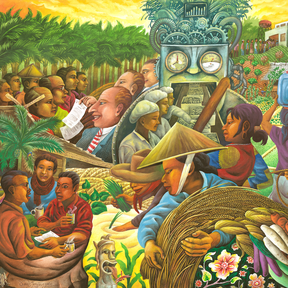
International Conference: Critical Agrarian Studies in the 21st Century
To mark the 50th anniversary of the Journal of Peasant Studies (JPS), JPS together with the College of Humanities and Development Studies at China Agricultural University (COHD-CAU), the Collective of Agrarian Scholar-Activists from the South (CASAS) and the Transnational Institute (TNI) are convening an international gathering in October in Beijing, China to critically analyze ecological and agrarian questions in the 21st century.
-
Read More 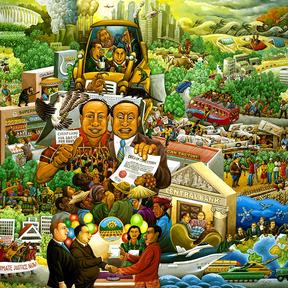
Land grabbing ten years on: a Call for Applications for small research grants
The Land Deals Politics Initiative is launching a call for applications for small research grants. Twenty-five grants of $3000 each are available to researchers from/based in the ‘Global South’ who have undertaken original empirical research and wish to write this up.
-
Read More 
50th Anniversary Collection - Top 50 Most Read Articles - free access
To celebrate the 50th anniversary of JPS we are releasing a golden collection of articles free access until August 31st. This collection includes the top 50 most read articles in JPS history. They cover classic concepts, but also pressing timely issues and articles used in classrooms, study groups, and among practitioners around the world. We hope this collection continues to spur thought and creative action.
-
Read More 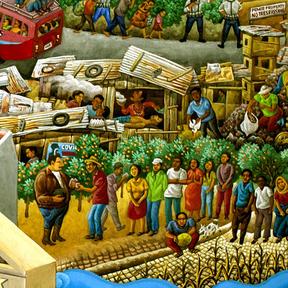
50th Anniversary Collection - Top 50 most cited articles in JPS - free access
To celebrate the 50th anniversary of JPS we are releasing a golden collection of articles free access until August 31st. This collection includes the top 50 most cited articles in JPS history. They cover classic concepts and key issues including rural livelihoods, food sovereignty, land grabs and enclosures, agroecology, peasant resistance, and transnational social movements. We hope this collection continues to inspire!
-
Read More 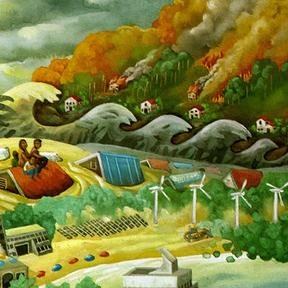
50th Anniversary Collection - Editors Choice Top 50 Recent Articles - free access
This year the Journal of Peasant Studies is celebrating its 50th year in print. Since the first volume spanning 1973-1974, JPS has tackled some of the most powerful issues in the rural world. To celebrate the anniversary we are releasing a golden collection of articles free access until August 31st. This collection is the editors' choice top 50 recent articles, selected from the the top cited articles of the last two years and the 2021-2022 Bharadwaj-Wolf Prize winners and finalists.
-
Read More 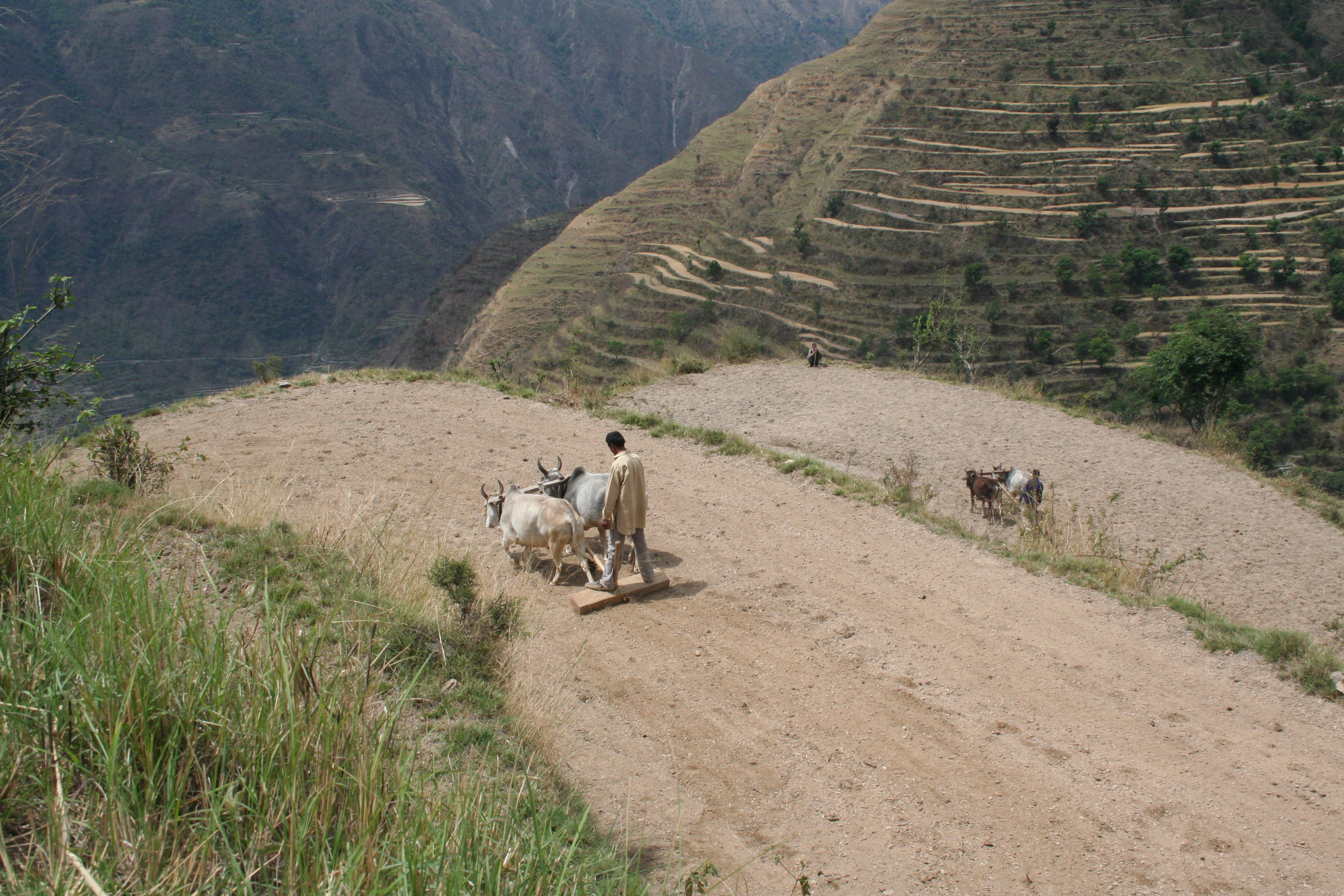
Announcing the 2021-2022 Bharadwaj-Wolf Prize - Free Access
Announcing the 2021-2022 Bharadwaj-Wolf Prize - All Winners and Finalists Free Access
-
Read More 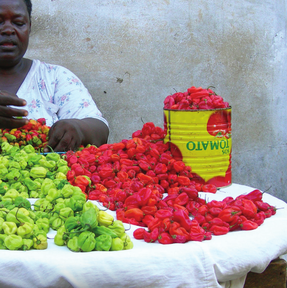
Agrarian Politics Podcast: Sustainable rural livelihoods – an approach, not a theory
In a conversation with Ruth Hall and Boaventura Monjane for the Agrarian Politics podcast, produced by PLAAS, Ian Scoones talks about the Sustainable Rural Livelihoods Approach, its interest, contributions, and limits.
-
Read More 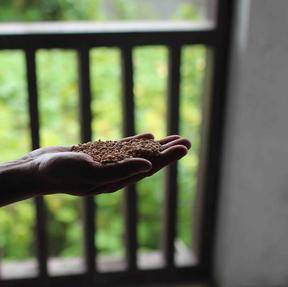
Experience the world as a weak person
On 23 June 2019, as Dean of the College of Humanities and Development Studies (COHD) at China Agricultural University, I delivered a speech entitled ‘Experience the world as a weak person’ at the graduation ceremony. However, in our society, everyone wants to become strong, and no one wants to be weak. It is observed that in Chinese society the increase in material wealth has gone hand in hand with an increase in rage and hostility. One of the reasons behind is that many people approach society and treat others with the mentality of a strong person. In fact, people are not at all able to comprehend the life realities and inner worlds of the weak ones, thus we need to maintain an attitude of trying to experience the world as a weak person.
-
Read More 
Free access papers - Climate change and agrarian justice
The Climate Change & Agrarian Justice online conference organized by JPS, CASAS, PLAAS and TNI is going to happen on 26-29 September 2022. Some of the papers to be presented and discussed during the conference have already been published in JPS, as part of the JPS Special Forum on Climate Change and Critical Agrarian Studies. In order to help expand and deepen the conversation, we are offering 14 of these articles free access from 20 September until 31 October 2022.
-
Read More 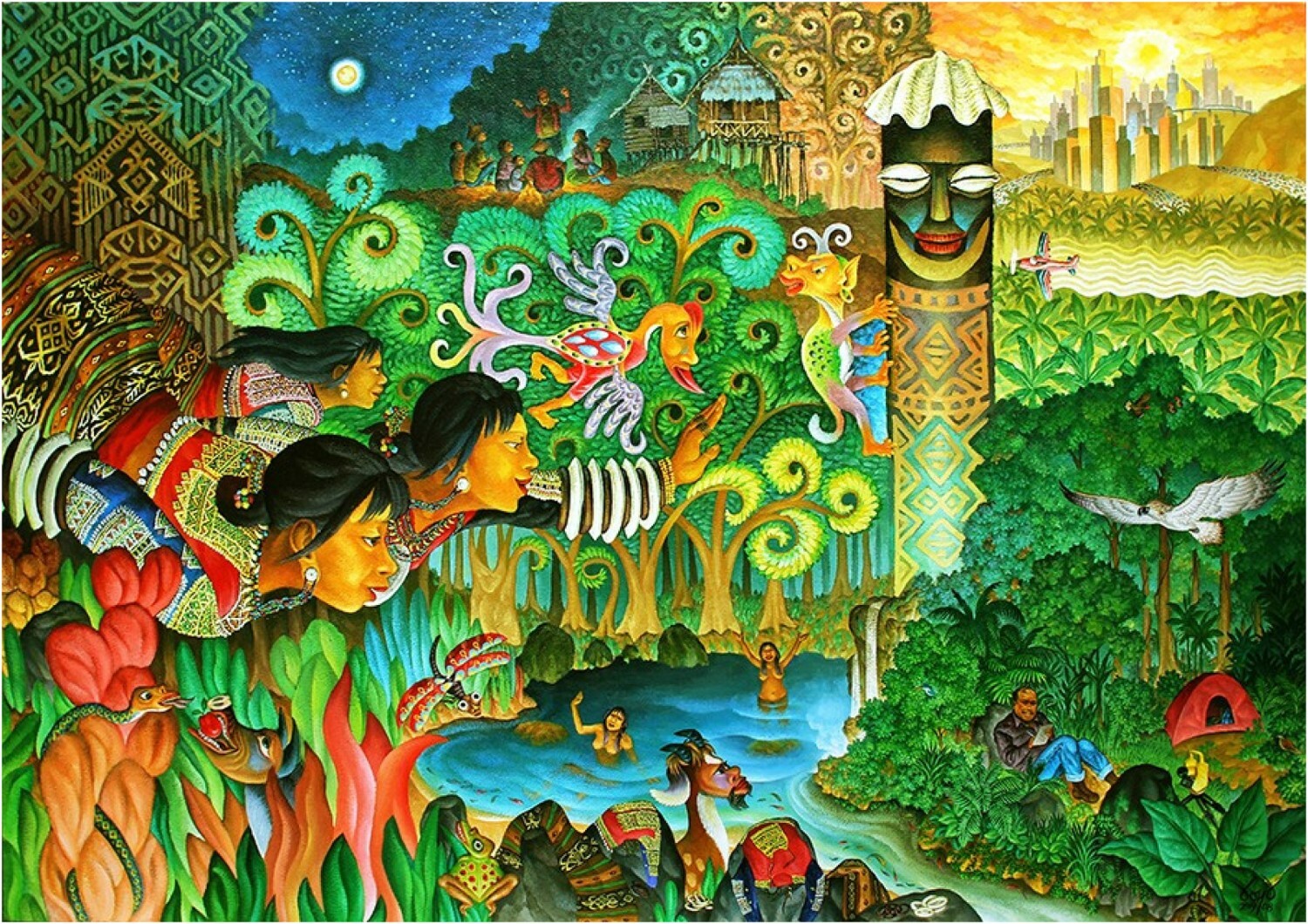
Sustaining agrarian struggles through painting invasion and resistance: the work of Boy Domínguez
Known as ‘BoyD’, Federico Domínguez currently lives and works in Quezon City in the Philippines. His paintings of agrarian places and peoples have been featured on many covers of this journal, as well as on posters celebrating JPS scholarship. His paintings have also travelled in numerous exhibitions across the Philippines, in Europe, Taiwan, Australia, and other places. BoyD’s agrarian art is a strand in a long history of art being created in support of, and in symbiosis with, struggles for social justice (e.g. Lampert 2013; Reed 2019). The Philippines, for much of BoyD’s childhood, was ruled under martial law by the Marcos family which drew on oppressive US colonial patterns to purloin the country’s resource wealth. Even as democratic government seemed to arrive from the mid-1980s onwards, entrenched structures of corruption and exploitation persisted, with local politicians and businesses inviting in development projects that displaced peasants. The authoritarian Duterte government continues these practices of violence against humans and ecosystems.
-
Read More 
Climate Change and Agrarian Justice Online Conference - Registration Open
Registration is now open forthe upcoming
International Online Conference on Climate Change and Agrarian Justice
Dates: 26-29 September 2022 Time: 13.00 - 15.30 CAT/ CET each day
-
Read More 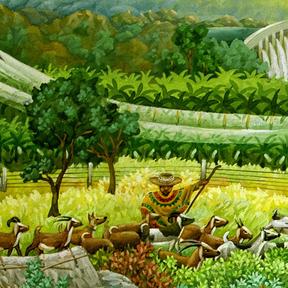
Introducing the Artivism Review Series
Introducing: Artivism Review Series
Alberto Alonso-Fradejas, Jessica Barnes and Ricado Jacobs
JPS 2018-2021 Reviews Section Editors
August 2022
The JPS community and readers are surely familiar with the thought-provoking artwork that features on the journal´s covers, posters, and Agrarian Conversations website (https://peasantjournal.org/). Through this critical aesthetics, JPS has long honored the rich and global tradition of artistic activism, or ‘artivism’, in the realms of agrarian and rural politics.
Today, we are excited to expand JPS´ concern with, and respect for, artivism with the addition of an ´Arts and Agro-Environmental Justice´ review series to the journal.
-
Read More 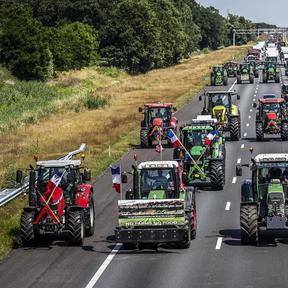
Sobre las protestas de los agricultores de derechas en los Países Bajos - Jan Douwe van der Ploeg
La actual ola de protestas de los agricultores neerlandeses (véase DutchNews.nl: Hasta 40 000 agricultores se manifiestan contra el cierre de explotaciones, junio de 2022) puede resultar desconcertante para los que ignoran las complejidades de la agricultura de los Países Bajos. Y es que se suele presentar la agricultura neerlandesa como una de las más modernizadas del mundo y, al menos en el discurso hegemónico, como un ejemplo para muchos otros países. Asimismo, los agricultores neerlandeses, especialmente los más grandes, que ahora están en la calle, se encuentran probablemente entre los más favorecidos del planeta: reciben subvenciones asombrosas de la Política Agrícola Común de la Unión Europea.
-
Read More 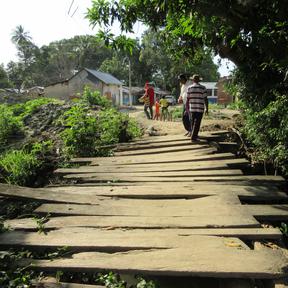
Colombia: on the path towards agrarian justice?
Last June, presidential elections in Colombia delivered a historical result, with the victory of leftist leader Gustavo Petro and his ally for the vice-presidency, the Afro-Colombian feminist and environmentalist activist Francia Márquez. This is the first time in history that a left-wing candidate reaches the presidential seat in this 50 million people Latin American nation. The challenges ahead are enormous, as the Historical Pact, the president’s political movement, faces pressing demands to deliver radical political change, while coping with a degrading economic climate and a debt burden inherited from the conservative government in power since 2018. Promises of agrarian justice rank very high in the new administration’s agenda. The massive mobilization of impoverished rural communities was critical to the Left’s victory, and it obliges the president and Congress.
-
Read More 
Thanks to the JPS community a new impact factor for 2022, and free access articles!
The Clarivate Journal Citation Reports (JCR) 2022 – that is, covering articles released in 2019 and 2020 cited in 2021 – was released on 28 June 2022.
Journal of Peasant Studies (JPS) has received an Impact Factor of 5.33. Our 5-year Impact Factor is 6.6. We rank 1/93 in Anthropology, and 5/43 in Development Studies.
In addition, in early June 2022, CiteScore 2022 was released and JPS has received the score of 10.1. We rank 1/1127 in Cultural Studies, and 2/443 in Anthropology.
We would like to thank JPS authors, reviewers and readers for keeping the Journal in an important position in our field in this particular metric. Thank you!
On this occasion, we are releasing a set of recent articles free access until 31 August 2022. Enjoy reading!
-
Read More 
Jan Douwe van der Ploeg on Right wing farmers’ protests in the Netherlands
Some 40,000 farmers in the Netherlands are engaged in what they call ‘guerilla fights’: blocking the country’s highways with their heavy tractors and threatening to ‘up the ante’ in civic disruption. Jan Douwe van der Ploeg explains the roots of this right wing rural uprising and what it has to tell us about key issues global climate politics.
-
Read More 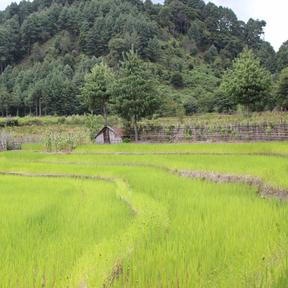
Video abstract - The Ties that Bind
This paper argues, firstly, that the notion that a resolution of the agrarian question requires the dissolution of small-scale farming is not what Marx thought. It argues, secondly, that extractivist capitalist agriculture is not developing the productive forces. It argues, thirdly, that contemporary agroecological farming is a knowledge-intensive form of production that can maximize the productivity of energy flows, which are central to the productive forces. Cumulatively, it is suggested, the terms and conditions by which the contemporary agrarian question can be resolved is through an agroecological agrarian transition.
-
Read More 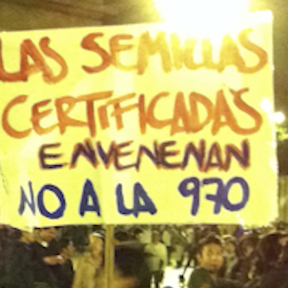
Video Abstract - Revolturas: resisting multinational seed corporations in Colombia
Diego Silva Garzón & Laura Gutiérrez Escobar guide readers through their work documenting resistance to seed corporations and legal seed regimes through seed-saving practices and activism in Colombia.
-
Read More 
Call for Applications - 4th Annual Writeshop 5-10 December, Cape Town
The Journal of Peasant Studies and partners are pleased to announce the
4th Annual Writeshop in Critical Agrarian Studies and Scholar-Activism
**
2022 5-10 December, Cape Town**Call for Applications
The Journal of Peasant Studies (JPS), College of Humanities and Development Studies (COHD) of China Agricultural University (Beijing), Institute for Poverty, Land and Agrarian Studies (PLAAS) at the University of the Western Cape and the Collective of Agrarian Scholar-Activists from the South (CASAS) the emerging association of graduates of this annual writeshop) are jointly organising the 4th Annual Writeshop in Critical Agrarian Studies and Scholar-Activism for PhD students and young researchers (up to 5 years from PhD completion) who are based in, or are originally from, the Global South.
-
Read More 
Call for papers and participation: conference on climate change and agrarian justice
The Journal of Peasant Studies and partners announces the international online conference on
Climate Change and Agrarian Justice
Dates: 26-29 September 2022
Time: 13.00 - 15.30 CAT/ CET each dayCall for papers and participation
-
Read More 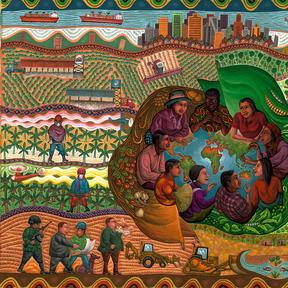
Welcome to the new editors' website for the Journal of Peasant Studies!
Welcome to the new website of the editors of the Journal of Peasant Studies!
-
Read More 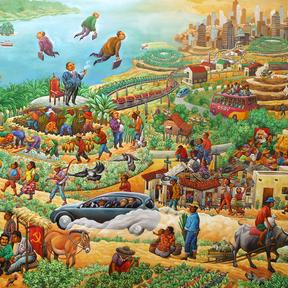
Special Forum on Climate Change and Critical Agrarian Studies
Climate change is inextricably entwined with contemporary capitalism, but how the relationship between capitalism and climate change plays out in the rural world requires deeper analysis. In particular, the way agrarian struggles connect with the huge challenge of climate change is a vital focus for both thinking and action.
